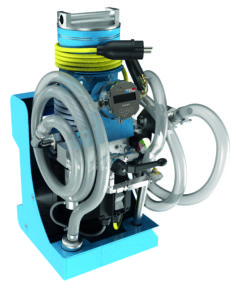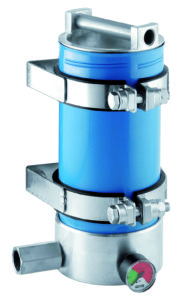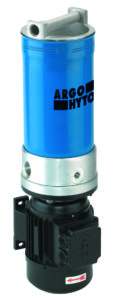Are there specific types of off-line filtration which are increasingly used? If so, why?
Yes, we see that the demand for mobile units with integrated sensors is growing. Experienced maintenance and service employees nowadays are aware about the fact that off-line filtration reduces the operating costs of hydraulic machines.
Additionally, more and more standards, manufacturer and quality guidelines demand to protocol the cleanliness of the oil. This ensures that service measures have been carried out carefully and thereby prevent damages or still stand. 
Is there a greater need for off-line filtration since plants/machines become more compact and have less room for on-board filtration?
The trend to reduce the fluid volume in machines increases the stress on the oil caused by heat, oxidation and particles. To cope with this higher stress, better oils and additives are needed, along with an improved service strategy. Off-line filtration allows to improve the oil condition and increase the lifetime of the used oil and machine without wasting precious space and weight during  normal operation.
normal operation.
Do you see changes in how/why filter carts/off-line filtration are being used?
Besides the cost saving effect, off-line filtration gives the user higher flexibility and safety. A machine can not only be serviced in a fixed interval, but when the oil condition makes it necessary. The initial oil quality and the result of the purification process are measured by the integrated sensors what improves the handling, since no oil samples have to be taken and analyzed. This feature is also used at end-of-line quality checks to assure and proof system cleanliness and health.
What is the biggest trend in off-line filtration design and use? 
Along with the trend of making the units smarter, by integration of oil condition sensors, we see that customers want the units to be simple and intuitive to operate. Additionally, the physical parameters like flow, viscosity and temperature have been extended to suit more applications. Modern off-line filtration systems also do not only filter particles, but also water and air from the oil. All these developments help to further improve the benefit of off-line filtration units and the health of the system and thereby substantially reduce costs.
Argo Hytos
www.argo-hytos.com


Leave a Reply